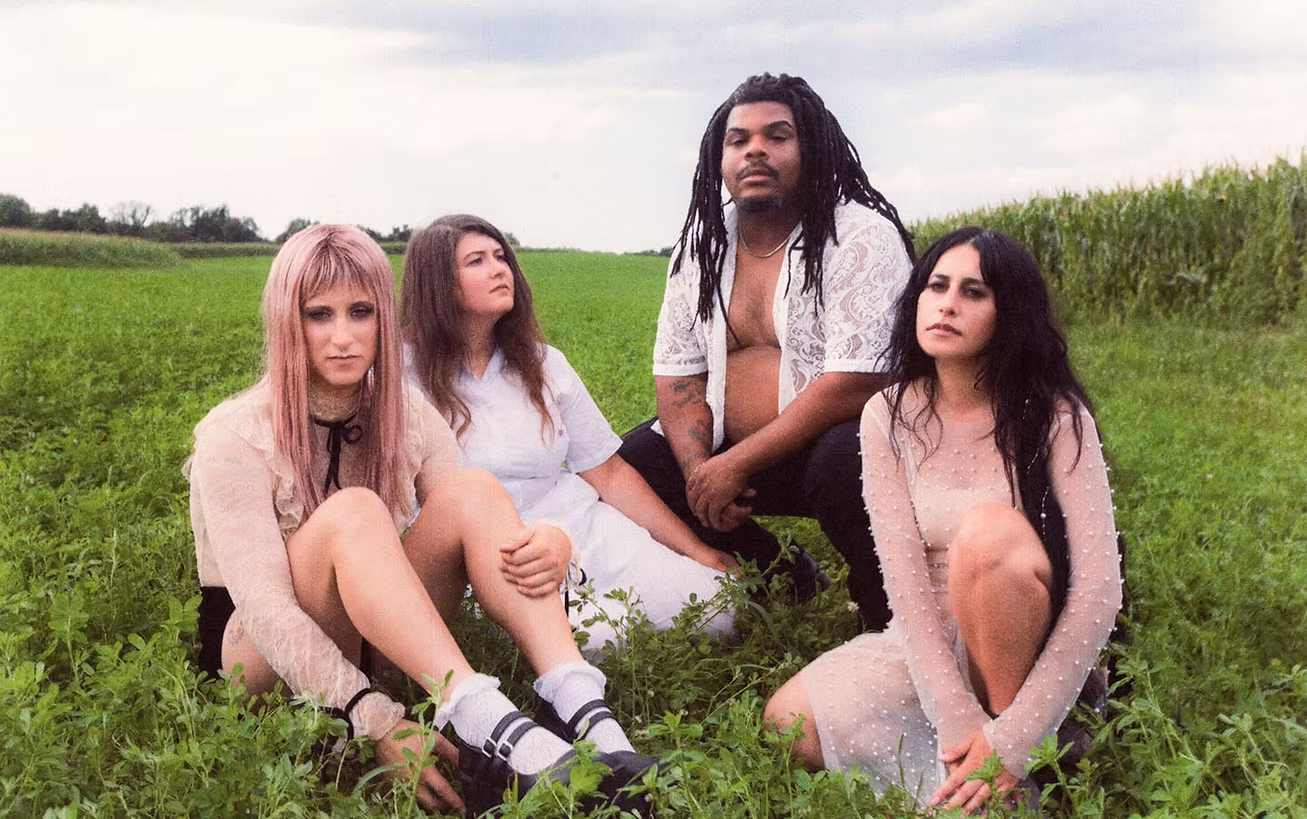
BY: L. Kent Wolgamott
“We just did like 55 fucking shows in three months,” she said. “I’m fucking exhausted. We were on tour for three months straight up. We started April 4 and we ended July 1.”
The Philadelphia punk band wasn’t home for long. The band went back out in mid-July for a short tour that took them to Chicago’s Pitchfork Music Festival, then, in August to Europe and, this fall back to the United States for dates that will run through December.
That, for Dabice, is too much touring in support of “I Am Heaven.”
“I now think that your record cycle should just be like three months,” she said. “This 12 to 18 month is psychotic, but here we are. Under the constraints of capitalism, the only way to make a living through your music is to perform live. So that’s what we do. But, you know, it’s more than that. It’s really such a gift to be able to go out there, and there are people who really want to see you perform and to get to experience that record live.”
Singer-guitarist Dabice put together Mannequin Pussy – the name comes from an inside joke – with drummer Athanasious Paul in the early 2010s, releasing a handful of EPs and albums and expanded to a four piece as their music evolved from intense punk to the mix of thrashing punk and power pop found on “I Am Heaven.” And they grew from Philly staple to international sensation.
“This, very purely, started as basically, like a primal scream performance art type thing, where it was just about being on stage, exercising deep emotions, and that was it,” Dabice said. “There was never the expectation that it would build in this way. But to say that I didn’t believe it could be like this would be a lie. I think I always kind of saw it going this way.”
Mannequin Pussy’s lyrics have also evolved, reflecting the world around Dabice, the primary writer, as a 30-something woman who recently went through a breakup.
“I think this album is what happens in the absence of romance, removed it from your life, and you’re just kind of reflecting,” she said. “We’re multifaceted people with a lot of things to say, with a lot of things that we want to discuss. It’d be kind of boring if every song kind of took the same shape and emotional tone or emotional story.
“Artists are just a reflection of the society in which we’re living,” and so we’re kind of just taking in and absorbing and observing everything that’s around us,” Dabice said. “So that’s why on this album, there are songs that are more politically speared in a way, more commentary and reclamations on loneliness, or expectations of you as a woman in the way that you’re supposed to be.”
Those lyrics inside the dynamic music have, Dabice said, created a strong connection with the band’s fans that intensifies when it moves from the recording, heard on headphones and speakers, to Mannequin Pussy’s intensively performed shows.
“The remarkable thing about music is it’s kind of a necessity as this cathartic connection,” she said. “We’re not really a band that imagines the audience when we’re within the world of creating an album. But since we’ve now been in that world for the past few months,of performing this show again and again and performing this album again and again, seeing the way that it really affects people on a deep, emotional level, has been really a huge gift.
“It’s settling in people where they’re examining their own lives, and they’re having the ability to purge emotions that maybe they’ve been holding on to,” Dabice said. “And, the actual, physical place of the show is also this cathartic release. But ultimately, that’s what I think music is here for us to do.”
Interestingly, when asked what she finds most enjoyable about her musical work, Dabice said it was composing the lyrics, which is generally done after the instrumental bed is completed.
“Writing the music is where I find the most joy,” she said. “The creation of a record, just making those songs, to me, is where I feel the most creatively fulfilled and alive. Then everything else kind of becomes intrinsic to the performance and the delivery of this thing that you made.
“It’s just not to say I don’t enjoy performing. I really do. I think just performing this much in such a small amount of time makes you feel a very different type of pressure.,” Dabice explained. “When you’re just constantly in a state every day of being seen by hundreds and hundreds or thousands of strangers every day, it starts to wear on you. And I’m someone who definitely believes that you need solitude to replenish yourself and to get into a more creative and focused headspace. That doesn’t really happen when you’re in the touring part of what it means to be in the music industry, really.”
